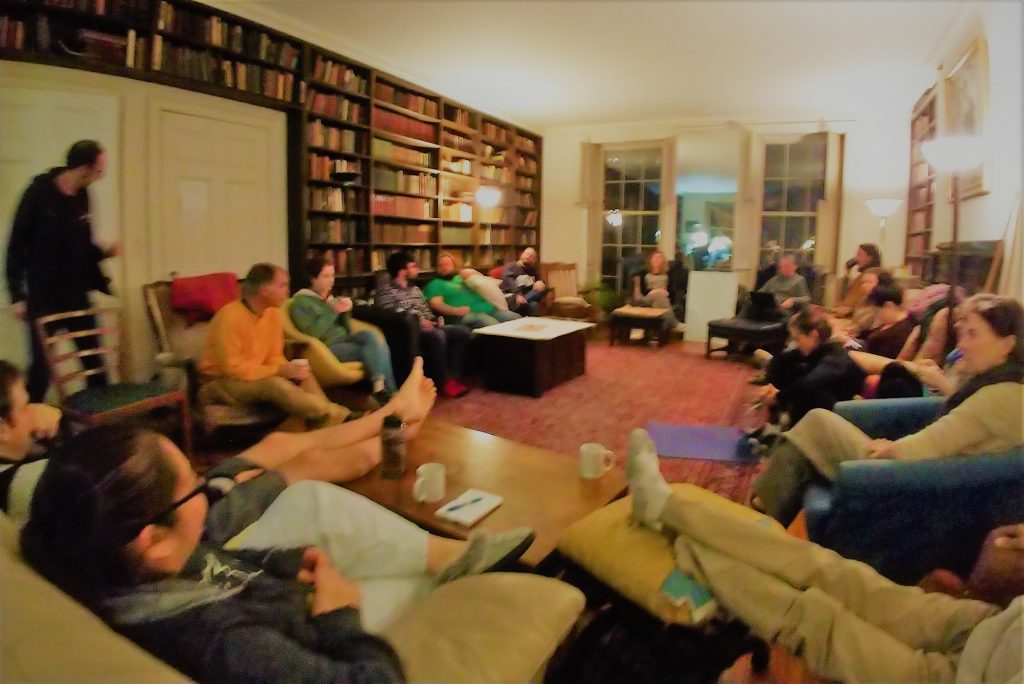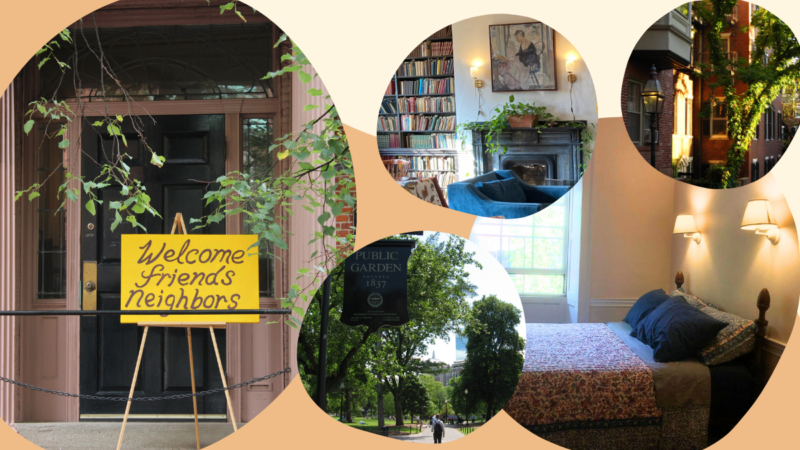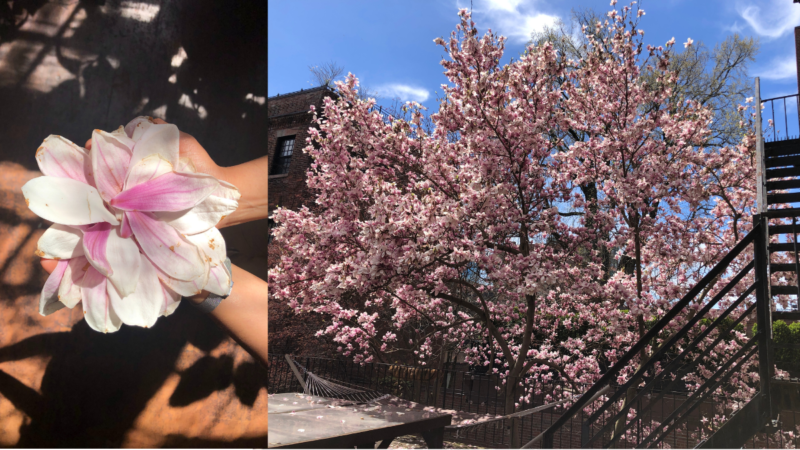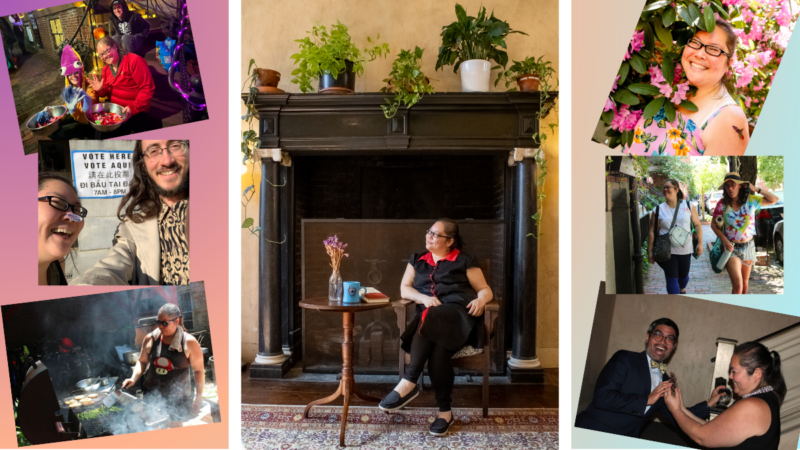New in September 2019: Financial Assistance Fund at BHFH
The challenge of affordability
The greater Boston metro area is one of the highest-priced residential rental markets in the country. Residency at Beacon Hill Friends House is known for being highly affordable – not just relative to Beacon Hill, but to many other parts of greater Boston as well. However, over the past few years we’ve faced increasing tension between keeping rent affordable and keeping up with rising costs of building maintenance and repairs, utilities (over $26,000 in 2018), paying BHFH staff a living wage and full benefits, and more.
Monthly rent at BHFH currently costs $863 for a large single room and $749 for a spot in a double room, with Board (food & utilities) an additional $362 per month. We believe this is both a good value and yet is also significantly more than many folks can afford. We regularly get inquiries from people interested in residency – who sound like they’d be great fits for our residential community, who would both bring a lot and be eager to deepen, explore Quaker values, and grow through life here – who decline to pursue the application process further when they find out the cost of rent.
Steps toward financial accessibility
To address this challenge, a few years ago the Friends House started including a small Hardship Fund in each year’s budget: a resident can apply for a hardship grant of up to $500 (taken off of their next month’s rent), up to twice per year, for support through the sorts of unexpected financial curveballs that life sometimes throws at people. We’ve budgeted $2,500/year for this and it’s been mostly used each year. But we realized over time that this program, while useful, wasn’t addressing the deeper question of affordability.
Now, after many months of consideration, feedback, and discernment among residents, staff, and Finance Committee, we’re launching a new program as the next step in our journey towards greater financial inclusion and accessibility: a Financial Assistance Fund to provide partial rent reduction to residents in financial need. Under this program, residents who earn less than a certain salary threshold – for Fiscal Year 2020, $30,000/year* – will receive a reduction – for FY2020, $100 – in their cost of rent each month. We recognize that income isn’t the only measure of financial (in-)security, but it is a major one, and we’ve built in a provision that residents who don’t meet this threshold but are still in need can apply for an exception.
Fiscal sustainability?
To make this program financially sustainable, we hope to fund it through ongoing monthly donations from supporters who would like to see the Friends House be more financially accessible – whether BHFH alumni, others in our broader community, or current House residents. In fact, more than 1/3 of current residents have signed up to chip in, from $5 to $50/month, to support this program to making life here more financially accessible for their fellow housemates! As residents move out over time we plan to inviting them to continue making these monthly contributions as a way of “paying forward” the gift of affordable BHFH residency to future generations of Housies. For the current fiscal year (FY2020), we’ve also seeded the Financial Assistance Fund budget with some funds from a bequest from BHFH alumna Maria Chang (BHFH ’76-’78), who passed away last year. Maria’s close friend Ilene shared with us her recollections of Maria’s feelings about the House:
Because of organizations like the Friends House, Maria was able to move to Boston with $40 in her pocket and have a warm, friendly place to live when she arrived. Maria spoke fondly (and entertainingly) about her first few years in Boston and how places like the Friends House made it possible for her to afford to live here and also attend school. I think Maria would be pleased to [have her contribution known about] especially if it would further include the positive stories about the importance of welcoming immigrants to America. I am sure she would be happy to know that the money that she saved through her many years of employment will now be used to continue to help people like her, and so many of the folks who the Friends House have stewarded over the years.
What’s next?
We’d love one day for the experience of Friends House residency to be accessible to anyone regardless of financial means. (Not that it would necessarily be free, but that cost wouldn’t be an obstacle to anyone getting to experience and grow from residency at BHFH.) We’re not at that point yet, but we’re excited about this next step, and we’d love your support, whether large or small, to help us stabilize the current Financial Assistance program as a foundation for greater accessibility and inclusion at the Friends House. Will you join us in chipping in monthly to keep the benefits of residency possible to a broad range of residents? If this program goes well and proves financially viable for us, we look forward to exploring further expansions to it next year – such as raising the salary threshold, increasing the amount of rent reduction, or other modifications.
I’d love to hear any thoughts you have on this, or recommendations for other practices around financial accessibility that you’ve seen be successful. You can reach me (Nils) by email at director at bhfh dot org – I’d love to hear from you.
Nils Klinkenberg
Executive Director
*This income threshold is inspired partially by the U.S. Department of Housing and Urban Development (HUD) definition that families who pay more than 30 percent of their monthly gross [pre-tax] income on housing are considered “rent burdened.” For FY2020, the BHFH double-room rent of $749/month amounts to just under $9,000/year, which is 30% of $30,000. This means that anyone earning less than $30,000/year is paying more than 30% of their income in rent to live at the Friends House. BHFH staff and the House ad hoc Financial Aid Committee will review this income threshold each year and may adjust it to reflect changing economic conditions, cost of BHFH rent, and available BHFH financial-assistance resources.






